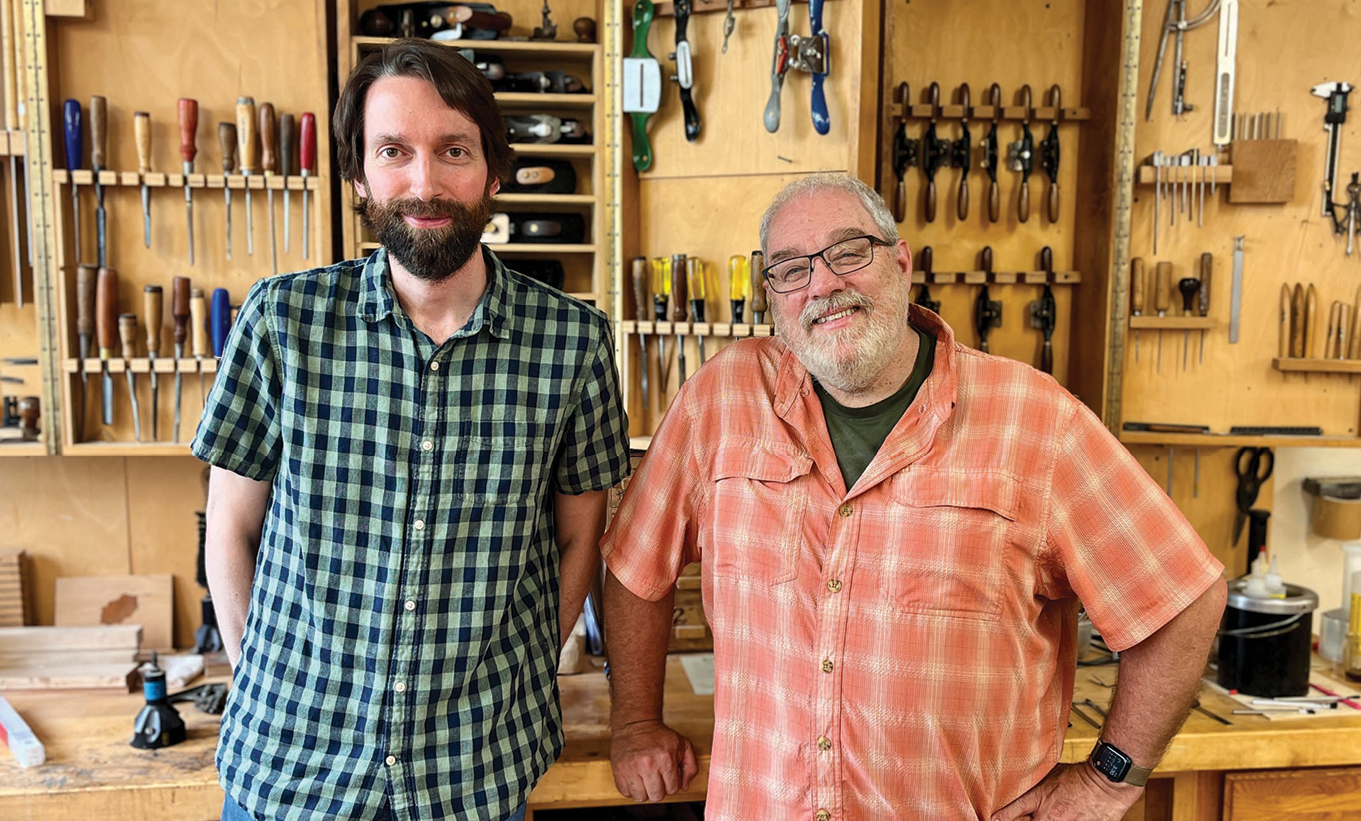Home

Furniture Workshop Builds a Solid Foundation
There’s a woodworking haven in Germantown, though you’d be hard-pressed to find it — even if you use Google Maps to get there.
Since its founding in 2006, Philadelphia Furniture Workshop has educated thousands of woodworking hobbyists. It offers over 50 classes a year for students who range in age and skill level. It’s practically hidden inside an old factory off Pulaski Avenue, tucked behind a barely noticeable break in the rowhouses just before Hansberry Street.
Even after you arrive, you may need some directions. Go through an unmarked door, up a flight of stairs, through another unmarked door, down a hallway, and you’ll arrive at the sawdust-scented classroom, where students come to learn everything from sharpening blades to building picture frames, three-legged stools or Appalachian post-and-rung chairs.
The classes, which usually take place on weekday evenings and weekend days, are geared toward beginners as well as seasoned enthusiasts. The most popular offering is a weeklong intro class that covers everything from woodworking terminology to milling lumber.
The workshop goes deeper in various project courses, in which students build pieces big and small, decorative and functional: bookcases, coffee tables, benches, tea boxes, Japanese lamps and utensil holders. Attendees work with pre-cut, planed wood and take home a handmade piece worthy of admiration, including a sleek, oil-finished cherry side table, which is another popular class.
PFW Executive Director Craig Stevens is responsible for the contemporary look of these projects. He studied under James Krenov, a famed cabinetmaker who started a fine woodworking program in California in the late ’70s. According to Stevens, Krenov’s style defied neat categorization, but blended Scandinavian influences with Shaker characteristics. If you’re not familiar with either, think tapered legs, clean lines and minimalist design.
In the 35 or so years Stevens has been honing his craft, he’s developed an aesthetic shaped by his training as well as a love of Japanese woodworking. (Stevens’ wife is from Japan, as was one of his fellow classmates at the Krenov School.)
Taking Up the Woodworking Mantel
Stevens joined PFW in 2017; he took over from founder Alan Turner, a lawyer whose woodworking hobby eventually led him to teach night school classes in the Philly suburbs. He dreamed of opening his own school, which eventually led him to 5212 Pulaski Ave., a space rumored to be an old mattress factory. The second story space doesn’t have an elevator, so heavy equipment was scissor-lifted in through a trap door in the floor. Even now, boards of timber are carted up via conveyor from the first floor.
Turner ran the school along with other woodworkers for a little over a decade, teaching basics as well as project courses that included historical reproductions (think a Hepplewhite butler’s chest or a Chippendale corner chair). In 2014, he established a nonprofit that would ensure the PFW continued after his retirement. After Stevens was hired, Turner moved to Connecticut, where he continues to teach furniture making and basic skills.
PFW, which is now run by a board, serves about 350 students a year.
“Most folks are in their 30s,” Stevens said. “We certainly have retired folks that have been doing this a long time in their basement or their garage and they just want to get better. But [by and large] it feels younger than that.” Some come from as far away as Princeton, NJ, Harrisburg and Washington, DC.
PFW’s space is outfitted with a wide range of tools. Some are industrial sized, like the band saw, planer and jointer that make quick work of rough-sawed planks that get shaved down to building blocks for class projects. They also have the power tools you’d expect in any woodshop — table saws, miter saws and drill presses.
Its collection of hand tools — planes, chisels, spoke shaves, Japanese kanna and more — really stands out. Part of why they have so many is because Stevens and instructor Greg Horton — who joined the nonprofit in 2021 after taking a 12-week class there — teach traditional joinery, in which pieces of wood are cut and shaped to dovetail or interlock with each other. There may be some wood glue involved, but there are no nails, screws or bolts. It’s an old-school approach that yields sturdy results.
“It’s stronger than screws and it looks better,” Horton said. “When you have wood on wood, you get a nice, tight, sound joint — it’s like the wood grew that way.”
Though the majority of the PFW’s students are new, Stevens and Horton have seen some over and over, which Horton thinks is one of the best parts of the job.
“Seeing students come back and getting better, it’s encouraging,” he said.
Find out more about Philadelphia Furniture Workshop and see its course offerings at philadelphiafurnitureworkshop.com.
